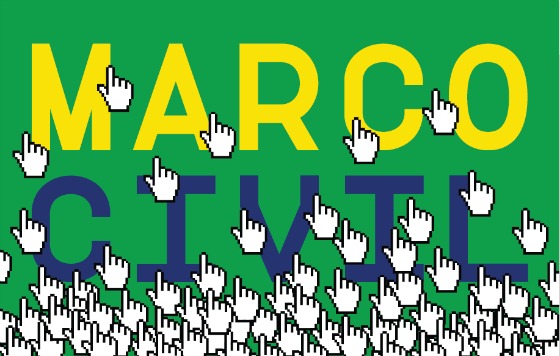
Guest blog post from Ronaldo Lemos, Access Board Member, Project Lead of the Creative Commons of Brazil, and the Director of the Rio Institute for Technology and Society
Last night, Brazil´s Congress approved the “Marco Civil,” a landmark piece of legislation comprehensively protecting human rights online. The vote follows closely on the heels of the Web´s 25th anniversary and Sir Tim Berners-Lee call for a “Magna Carta” of the internet. Brazil is the first country in the world to hear that call. Effectively, the Marco Civil creates a bill of rights for the Brazilian internet, a first for the world.
The Marco Civil was originally drafted by means of an open and collaborative online process. From the time it became clear that Brazil needed a bill of rights for the internet, it also became clear that the internet itself could and should be used to draft it. An 18-month consultation process followed, including contributions from a variety of stakeholders. It was truly a hybrid and transparent forum: users, civil society organizations, telcos, governmental agencies, all provided comments side-by-side. Each contributor could see the others’ contributions, and all cards on the table had to be considered.
The process was successful, leading a draft that was turned into a bill that was proposed by the Government for the consideration of the Brazilian Congress.
The final version boldly protects net neutrality, which is at the heart of the bill. It also protects privacy, clearly prohibiting NSA-like practices. For instance, the use of Deep Packet Inspection which might threat the user´s privacy at the physical layer of the connection is now illegal in Brazil. The Marco Civil protects freedom of expression, creating safe harbors for online intermediaries in Brazil, which would require internet platforms to only take down content when served with a valid court order (although this doesn’t apply to copyright-related materials, which will be addressed in a forthcoming piece of legislation).
Another important principle of the Marco Civil is that if fosters a multistakeholder approach to internet governance in Brazil and abroad. In short, it translates the principles of the Brazilian Constitution to the online world. It is a victory for democracy, and for what it stands for.
In that sense, the Brazilian Marco Civil goes in opposite direction of other laws that have been passed recently in countries such as Turkey or Russia, which expand the powers of governments to interfere with the internet. Brazil´s law can be an example to other countries willing to take seriously the importance of the net to facilitating both development and a rich and open public sphere.
In the wake of the Snowden revelations, Brazil’s president Dilma Rousseff demanded a new article to be included in the Bill. It created a “forced data center localization” provision, which would have required certain types of companies to keep their data centers physically located in Brazil. That provision received a great deal of criticism, including by me. In the end, the article was removed from the bill, and no forced localization of data has been included in the bill. Instead, a provision asserting the Brazilian jurisdiction over data and services offered in Brazil has been included. It is not perfect, but much better than the forced localization alternative.
The Marco Civil also includes a requirement that ISPs providing connectivity services and other internet services retain user data for a year and six months respectively, but this is significantly shorter than the five years that was previously proposed. It also creates a standard that improves on the current practices of data retention in Brazil, which were not defined by law, and because of that, quite uncertain.
From start to finish, the approval of Marco Civil took about 7 years of intense debate with numerous people been involved in the process along th eway. The support of civil society and an active participation on the part of the Brazilian public was crucial. One highlight is the performance of the rapporteur of the project, Congress Member Alessandro Molon, who understood the bill from its very beginning and gathered the technical expertise necessary to defend it to the end. His conduct regarding Marco Civil should be an inspiration to politicians dealing with similar issues. The bill is now headed to the Brazilian Senate for a vote, which could happen any day now. However, the loud celebration of the approval of the Marco Civil in the lower house will likely be persuasive over the Senate and deter further changes. It´s carnival for the Brazilian internet!
See Access’ previous campaigns on the Marco Civil